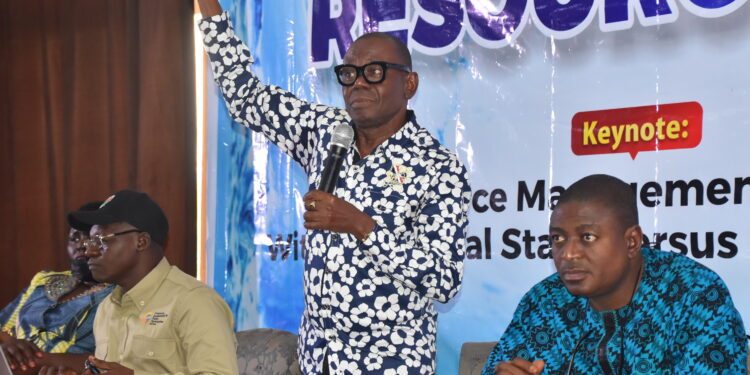Critical stakeholders have reaffirmed opposition to the contentious National Water Resources Bill as reports swell about plans for its re-presentation at the House of Representatives.
The stance contained in a communique issued at the end of a one-day National Town Hall meeting informed by the need to heighten further engagement on Water Resources Bill by the Amalgamated Union of Public Corporations, Civil Service, Technical and Recreational Services Employees (AUPCTRE), Public Services International (PSI) and the Corporate Accountability and Public Participation Africa (CAPPA).
The Executive Director of CAPPA, Akinbode Oluwafemi, during his opening address, noted that from the second to the last quarter of the year 2020, there was a national outcry about the obnoxious provisions of the Bill and the manner through which its promoters in the Ministry of Water Resources and the National Assembly tried to force it on the nation.
Mr Akinbode further noted that even after the Bill was stepped down, its promoters have continued to push for its representation; hence labour and civil society actors will continue mobilising against it till the government listens and institutes a new process that will incorporate the inputs and demands of the people.
The Keynote address titled, “Resource Management Dialogue Within a Federal State Versus National Water Bill”, was delivered by Dr Sofiri-Joab Peterside of the University of Port Harcourt, who dwelt on how the Nigerian government continues to brush aside the genuine yearnings of Nigerians and instead tries to impose neoliberal policies on the citizenry.
Mr Peterside said the unfortunate neoliberal economic paradigm imposed by the World Bank and other capitalist institutions has been bought by the Nigerian government and manifested in Nigeria’s education, electricity, public infrastructure, housing, and water sector. In contrast, the same government encourages tax benefits and generous incentives for the private sector operators.
The Groups thereafter recommended that, “The Resolution of the United Nations General Assembly on 28 July 2010 recognising the human right to water and sanitation and the importance of clean drinking water and sanitation to realise all human rights makes it mandatory for the Nigerian government to remove every obstacle to citizens’ access.
“The Nigerian government at all levels must wean themselves off the privatisation and Public-Private Partnership (PPP) addiction which has failed across the globe and spurred municipalisation, especially in the last decade.
“The Federal government discard the obnoxious National Water Bill and kickstart a fresh community-led process and consultation to birth an authentic and inclusive National Water Bill at the National Assembly.
“The Federal government respect the genuine wishes of Nigerians expressed through various public forums and public channels, including the media, by jettisoning the toxic National Water Bill.
“The Federal Government and all state governments embrace tested and proven public sector solutions in addressing Nigeria’s water challenges. Some suggested solutions are the Public-Public-Partnership model and National Water Trust Fund.
“There is a need for comprehensive data on water infrastructure investment and access to aid planning for now and the future.
“Government should embrace democratic decision-making and democratic control, which puts communities first in addressing water shortages. Women, communities, and vulnerable groups should be accorded priority in the plans to guarantee access.
“The Nigerian governments invest in public infrastructure and embrace democratic, participatory, and transparent management of water investments that fulfil the human right to water through the public sector.
“Need for sustained legislative engagements to ensure that the will of the people is respected.
“Need for sustained public enlightenment on dangers inherent in the current National Water Bill and mobilisation of Nigerians at the grassroots and across the board to support a new Bill which will address the inequities in the current Bill.
“In fashioning solutions to the crisis in the water sector, workers welfare and capacitation must be a priority to ensure the sustainability of policies to reverse the current water sector woes.
“Need for more engagement with the media to amplify the challenges in the water sector and a deeper understanding of the contentious issues in the National Water Bill.”

